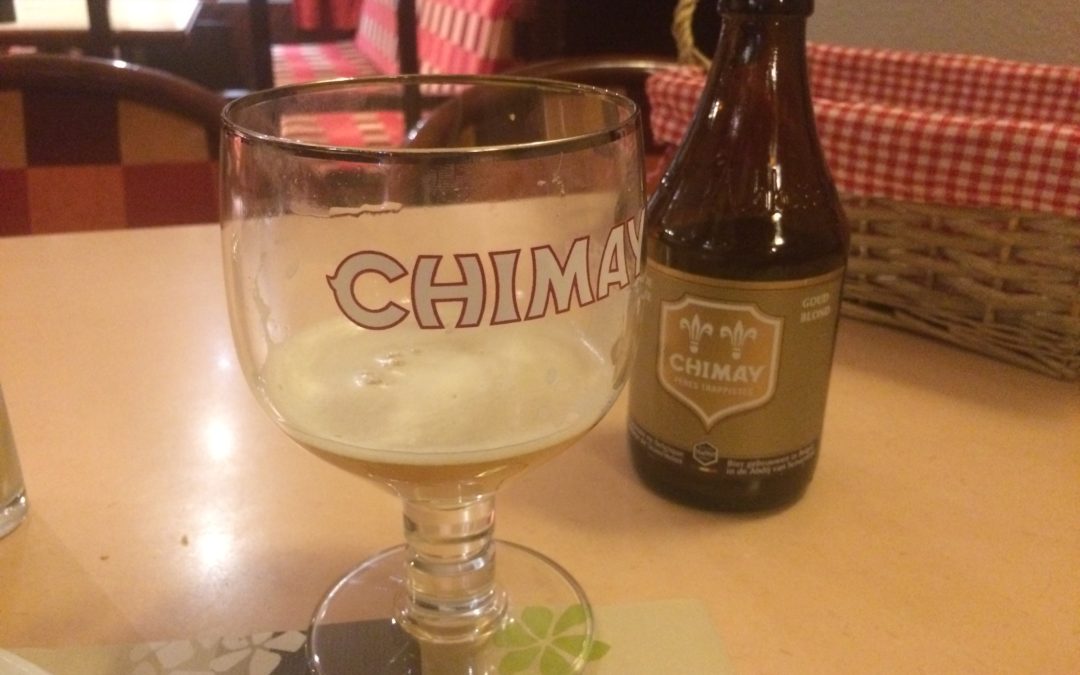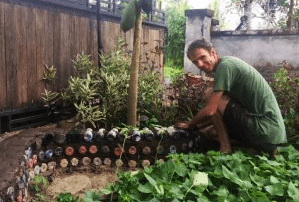Today I had a fascinating conversation with Frère Damien. When I first arrived at the monastery 10 years ago, Frère Damien was a novice– early 30s, and just having entered into the order. Today he is the Abott– having been elected a few years ago as the head of the community by his brothers. Frère Damien presides not only over the Abbey de Scourmont, but also over the Chimay brand of beer, and twelve other daughter monasteries around the world– from Wales to the Congo.
Frère Damien and I got talking about business this afternoon over two Chimay Reds. I shared my observation that for-profit corporations, with their profit motive for returning value to shareholders, are ecological and community destructive dynamic. I asked him how the monastery, with the significant revenues generated from its beer sales, got around this problem and were able to benefit the local region so much.
Frère Damien explained that monastery was founded in the 1850’s at the urging of a local priest to the Prince of Chimay who preside over the Chimay region, and the surrounding swamps, fields and forests. The priest urged the Prince to invite and commission a Trapist monastery so that they could serve the spiritual needs of the villages and develop the untamed lands on his vast estate. The order was founded with regional agricultural development as one of its goes and continues to this day.
However, during the second world war, their peaceful routine came to a halt. The monks were removed from the abbey by the invading Germans, who plundered the buildings for steel and other resources. The monks were sheltered by villagers during the years of the war. Its a kindness they never forgot. After the war, with the monastery and villages damaged and destroyed, the monks took the Prince’s orginal mandate to new level. In the shadow of destruction and tragedy left by the occupying army (see my last post) they reunited to not only to rebuild but also to give back abundantly to community that had kept them safe and which had suffered so much. This mission recruited many young men who had been alienated after the war (perhaps a little like Père Jaques). It was a this point that their commercial cheese brewery was established, taking the regular table beer of the monks and establishing it as a brand for sale outside the monastery. From the outset, the brewery was established as a non-profit, but, with an underlying fervent desire for serving and giving back to the community and region.
Today whereas other monastic beers are content to limit their brews, Père Damien sees no problem in expanding to meet global demand– so long as it bring more jobs and economy to the region.
I am in awe at the success and beauty of this model. Unlike the stories you hear out of Silicon Valley of the “dystopian nighmare” created by corporate technology corporation in San Franciso. Ecologically, the monastery maintains have transformed the previously “barren and wild plateau” into a majestic forest of towering pines, fertile fields, pasture and gardens. Socially, the brewery brings in hundreds of millions of euros to the region, employing thousands of locals in jobs that they can really be proud of. Spiritually, the monastery itself is a bastion of peace where visitors from around the region (and around the world sometimes too) come for peace and restoration.
Laurent, is one of the guests staying this week with me at the Abbey. He describes monasteries, like Scourmont, as accupunture pins on the energy lattitudes of the planet. The pins being modals reverberating peace and healing locally and up and down the lines. Its an apt metaphor.
I find the business model of the abbey tremendously inspirational– especially when you see around the fruits of the Prince and Priest’s intention over a 150 years ago. However, for our day and age, I feel the business is lacking slightly. Or rather, that we can learn from it– and apply an era appropriate evolution to the concept. The abbey is slightly mypoic in its regional focus. What about founding an institution that serves the planet? Or at least takes into consideration planetary dynamics and meta services? CO2 sequestration. Plastic sequestration. An enterprise founded to generate fervently generate great revenue for the purpose of serving and enriching the planet’s ecological harmony, imagine what kind of contribution it could make…………….


